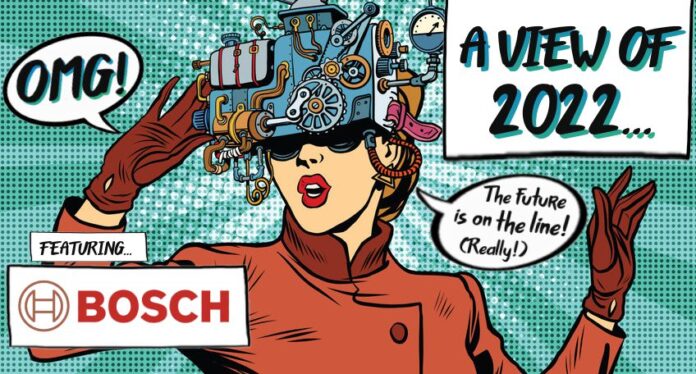Artificial Intelligence (AI) is gaining momentum as a key technology for industrial applications and will be one of the big focus topics in 2022. Many companies are curious and open to try out new AI functionalities. Their goal is usually quite simple: greater production efficiency, combined with ease of use for everyone involved in the production process. However, many companies and workers are afraid they might lose control. They still need to be convinced of the benefits.
Many examples in the consumer segment have already proven a certain maturity level and delivered benefits for users and providers alike. This will slowly but surely also emerge in industrial settings. At Bosch, we already harvest the enormous potential of AI in specific use cases. Take predictive maintenance or intralogistics material supplies, where we are currently employing AI. Before too long, this potential will be scaled to savings worth millions. That is, if we use AI in the right way.

Before we can use these powerful algorithms, however, we need to make sure that the basic processes are digitalized. Many companies are only just starting to do so. They still face the challenge of making their data available throughout the entire product lifecycle. Once this step is completed, the data needs to be “translated” into meaningful content – in other words, it must be structured semantically to use its full potential.
Bosch is combining intelligent software for production control, monitoring, and logistics planning into a manufacturing platform of its own. This connects to a larger database and enables tasks such as AI analyses for fault detection. With the Bosch Manufacturing and Logistics Platform (BMLP), Bosch will offer its roughly 240 plants worldwide a standardized ‘Industry 4.0 toolbox,’ which can be expanded and deployed as needed.
Looking a little further, Bosch has set itself an ambitious goal: by 2025, all Bosch products will contain AI or at least be developed and produced using AI. This could not be done without very specific domain expertise. AI needs to be “taught” by the right “teachers”, people who know exactly what they need to optimize their processes, be this an intralogistics milk run or a screwing process on the shop floor.
In 2022, we need to bring the domain experts and the AI experts together to create added value.

